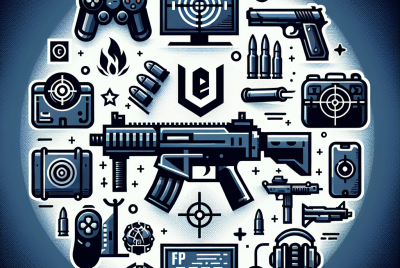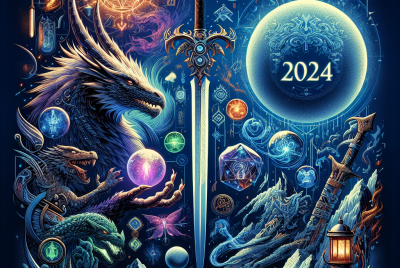The Developer’s Dilemma: Fan Outrage Over Unfinished Games
The Landscape of Game Development
The Rise of Early Access and Crowdfunding
In recent years, the landscape of game development has changed significantly. The advent of early access programs and crowdfunding platforms has transformed the way games are funded and released. Developers can now showcase their work to potential players early on, allowing them to gather feedback and raise funds to complete their projects. However, this model brings its own set of challenges and expectations.
Understanding Early Access
Early access allows players to purchase and play a game that is still in development. This system can be beneficial as it gives developers the opportunity to refine their products based on real user feedback. Without this feedback, many beloved titles might not have reached their full potential. However, early access has a flip side. Fans often become impatient and demand completion timelines that developers may not realistically meet.
The Role of Crowdfunding Platforms
Crowdfunding platforms like Kickstarter have also played a critical role in game development. They enable creators to pitch their ideas and secure funding from fans who believe in the project. While this method can lead to remarkable success stories, it can also result in disasters. Projects that promise the world can sometimes leave backers feeling cheated when they encounter delays or significant shifts in the project vision.
Expectations vs. Reality
As the barriers to entry in game development lower, expectations from players have escalated. Gamers now expect polished, feature-rich titles upon release. Unfortunately, the reality is often far from this ideal. A developer’s decision to release a game in an unfinished state can be one of the most controversial moves they can make.
The Pressure to Release
Developers often find themselves in a catch-22 situation. On one hand, there is pressure from fans and publishers to release a game within a specific timeframe. On the other, there is an intrinsic desire to avoid releasing a subpar product. This conflict can create a precarious balance where developers might compromise their vision for the sake of meeting deadlines.
Backlash from the Community
When a game is released that players feel is incomplete or riddled with bugs, the backlash can be swift and severe. Gamers take to forums, social media, and review platforms to express their dissatisfaction. This can escalate into what is known as fan outrage, where communities rally together to express their anger, often leading to a larger conversation about accountability in game development.
Understanding Fan Outrage
Fan outrage stems from several interconnected issues that developers must navigate skillfully.
The Communication Gap
Developers may underestimate the importance of clear communication throughout the development process. When players do not receive regular updates or transparency about the game’s status, frustrations can build.
Keeping Players Informed
Regular updates and honest discussions can help mitigate outrage. When developers are transparent about challenges and setbacks, they foster a sense of trust with their player base. This transparency helps fans feel included in the development journey, reducing the likelihood of backlash when things don't go according to plan.
The Role of Community Feedback
Listening to player feedback is crucial. Fans often have valid concerns about missing features or bugs. By actively engaging with their community, developers can prioritize fixes and show players that their voices matter. This engagement can turn potential outrage into constructive conversations about improvement and growth.
The Burden of Nostalgia
With long-established franchises, the stakes are even higher. Players often come to games with nostalgia, and their expectations can stray far from reality. Developers must tread carefully when creating sequels or remakes, as any deviation from the beloved originals can lead to significant backlash.
Balancing Innovation with Tradition
Successful franchises must strike a balance between innovation and the nostalgia factor. Many players want new experiences while still holding onto elements that made the original games special. Developers need to find ways to evolve their games without alienating their loyal fan base.
Crisis Management Strategies
When fan outrage occurs, developers must have crisis management strategies in place. A well-thought-out response can help tone down the conversation and refocus discussions on positive aspects of the game and the future updates. Engaging with the community during these critical moments can help rebuild trust and show players that their concerns are taken seriously.
The Aftermath of Fan Outrage
The impact of outrage on a game and its developer can be significant.
Reviews and Reputation Damage
A poorly received launch can lead to negative reviews that linger long after updates have improved the game. The internet is a cruel place when it comes to reviews, and a single bad release can alter the trajectory of a franchise or a developer's reputation.
The Long Road to Redemption
Some developers have managed to rehabilitate their reputations after a rough start. Regular updates, community engagement, and demonstrating commitment to improving the game can slowly win back disgruntled fans. However, this journey often takes time, and developers must remain vigilant in their efforts to make things right.
Building a Supportive Community
Creating a healthy, supportive community around a game can help mitigate the impacts of fan outrage. Developers can encourage players to share constructive feedback rather than vent frustration publicly. Initiating community events and rewarding helpful feedback fosters a more positive interaction between players and developers.
Navigating Future Projects
For developers experiencing outrage from an unfinished release, future projects can be affected. Lessons learned from difficult launches can influence everything from project timelines to marketing and community engagement strategies.
The Importance of Post-Mortem Analysis
Conducting a thorough post-mortem analysis after a tumultuous launch helps developers understand what went wrong. This reflection allows them to make informed decisions for upcoming projects, guiding them toward healthier development practices.
Setting Realistic Goals
To combat the pressure from fans, developers should set realistic goals and timelines. Overpromising can lead to underdelivering. By aiming for achievable milestones and communicating these to the community, developers can help manage expectations effectively.
The Role of the Gaming Industry
The gaming industry can also play a vital role in alleviating some of the pressure that developers face.
Industry Standards and Practices
As the industry evolves, so must the standards and practices that govern game releases. More flexible timelines, support for indie developers, and realism in promotional material can enhance the overall environment.
Encouraging Transparency
Industry-wide support for transparency can help guide developers in their communication approaches. Providing forums for knowledge sharing about best practices when engaging with fans fosters a culture of openness.
Restructuring Funding Models
Support for more forgiving funding models could encourage developers to take their time creating high-quality, finished products. Publishers should understand that rushing development often leads to disappointing outcomes for both the developer and the players.
Training and Education
As gaming continues to advance, training and education for developers on effective community engagement and crisis management are vital.
Incorporating Communication Training
Programs that emphasize the importance of communication—both within development teams and with fans—could lead to a more harmonious development process. Understanding how to navigate community feedback, manage expectations, and maintain transparency should be taught as part of game development courses.
Sharing Success Stories
Highlighting developers who have successfully navigated fan outrage can provide valuable lessons for others. Sharing stories of recovery and redemption can inspire other developers to adopt similar practices and maintain hope through tough situations.
The Changing Face of Game Development
As gaming technology advances, so too does the landscape of game development. With changes in how games are funded, communicated, and received, developers must stay adaptable.
The Future of Player Engagement
New technologies offer exciting opportunities for player engagement. Developers can leverage enhanced communication platforms to interact with fans in real time, fostering a sense of community while also reducing misunderstandings.
Utilizing Social Media Effectively
Social media can be a double-edged sword. While it allows developers to communicate rapidly, it can also amplify outrage before issues are addressed. Learning how to harness social media positively can help developers manage their public personas and foster constructive dialogue.
Emphasizing Community Building
Investing time in building communities around games can result in stronger loyalty from players. Engaging with fans through forums, Discord servers, and fan events can create a positive environment where players feel connected to developers.
Learning from Other Industries
The gaming industry can draw lessons from other fields that have faced similar dilemmas. Sectors like software development often deal with public scrutiny over product launches, providing valuable insights into crisis management and community engagement.
Adopting Agile Methodologies
Agile development practices emphasize flexibility and iterative processes, encouraging regular feedback and adjustments based on user input. Adopting these methodologies could provide a more responsive approach to game development, helping to balance fan expectations and development timelines.
Customer-Centric Approaches
An increasing emphasis on customer-centric approaches in various industries showcases the value of prioritizing user experience. Developers may need to embrace similar ideals, cultivating empathy for their player base and designing games that resonate with their desires.
Overall, the developer’s dilemma surrounding fan outrage over unfinished games is a multifaceted issue requiring thoughtful navigation. By fostering clear communication, setting realistic expectations, and building supportive communities, developers can move toward a more harmonious relationship with their players. Adapting to the evolving landscape of game development will ultimately enhance the gaming experience for all parties involved.




